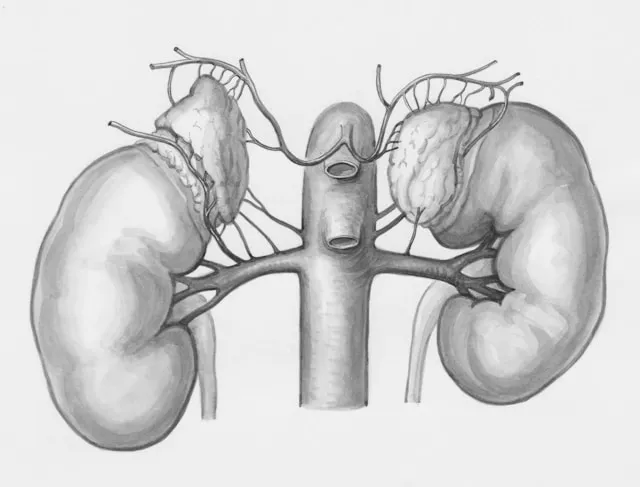
1. What Is Uric Acid and How Is It Processed?
Uric acid is produced when the body breaks down purines, natural compounds found in foods and within our cells. Under normal conditions, the kidneys process uric acid and expel it through urine. However, when uric acid levels become too high, due to factors like diet, genetics, or health conditions, the kidneys may struggle to eliminate it effectively. This can lead to an accumulation of uric acid in the blood, putting additional strain on the kidneys.
2. How High Uric Acid Levels Affect the Kidneys
Persistent high levels of uric acid can cause a range of problems for kidney health. When excess uric acid accumulates, it may form uric acid crystals, which can lead to kidney stones—a painful condition that can obstruct the urinary tract. Recurrent kidney stones increase the risk of kidney damage and are often a precursor to kidney disease.
Additionally, high uric acid levels can cause oxidative stress and inflammation within kidney tissue, further impacting kidney function. In the long term, this chronic strain can contribute to the development of kidney disease, as the kidneys gradually lose their ability to filter waste effectively.
3. The Role of Uric Acid in Chronic Kidney Disease
Chronic Kidney Disease (CKD) is a progressive condition where the kidneys lose their function over time. High uric acid levels have been identified as a risk factor for CKD, as they can worsen kidney function in those already predisposed to kidney issues. Research shows that managing uric acid levels may slow CKD progression, making it essential for individuals with kidney disease to monitor their uric acid levels closely.
The relationship between uric acid and kidney disease is often cyclical: as uric acid levels increase, kidney function declines, and as kidney function declines, uric acid is less efficiently removed from the body. This vicious cycle underscores the importance of managing uric acid levels to protect kidney health.
4. Dietary Tips for Managing Uric Acid and Kidney Health
Adjusting your diet can have a significant impact on uric acid levels and kidney health. Here are some dietary tips to help manage uric acid and support kidney function:
- Limit High-Purine Foods: Foods like red meat, shellfish, and organ meats are rich in purines, which increase uric acid levels. Opt for lower-purine protein sources like eggs, dairy, and tofu.
- Reduce Sugar Intake: High-sugar diets, especially those high in fructose, can increase uric acid levels. Choose whole fruits over fruit juices, limit sugary beverages, and avoid high-fructose corn syrup.
- Stay Hydrated: Drinking enough water helps the kidneys flush out excess uric acid. Aim for at least 8 glasses of water per day to support kidney health and uric acid management.
- Add Vitamin C-Rich Foods: Vitamin C has been shown to help lower uric acid levels. Citrus fruits, strawberries, and bell peppers are great sources to include in your diet.
5. Supplements and Treatments for Uric Acid and Kidney Disease
In addition to dietary changes, certain supplements can support kidney health and help manage uric acid.
- Vitamin C: Known for its uric acid-lowering properties, Vitamin C can be an effective supplement for those with high uric acid levels.
- Magnesium: This mineral supports metabolic function and can help prevent kidney stones by balancing calcium levels in the kidneys.
- Yuri Care Uric Acid Cleanse: This supplement is designed to help the body manage uric acid levels naturally, supporting both kidney health and uric acid reduction.
As with any supplement, it’s essential to consult with a healthcare provider, especially if you have kidney disease or other health conditions.
Conclusion
The connection between uric acid and kidney disease is clear: elevated uric acid levels can strain kidney function and lead to chronic issues. By managing uric acid through diet, lifestyle changes, and targeted supplements, you can help protect your kidneys and reduce the risk of developing kidney disease. For those at risk or currently managing kidney conditions, monitoring and managing uric acid levels is a proactive way to support long-term kidney health.

